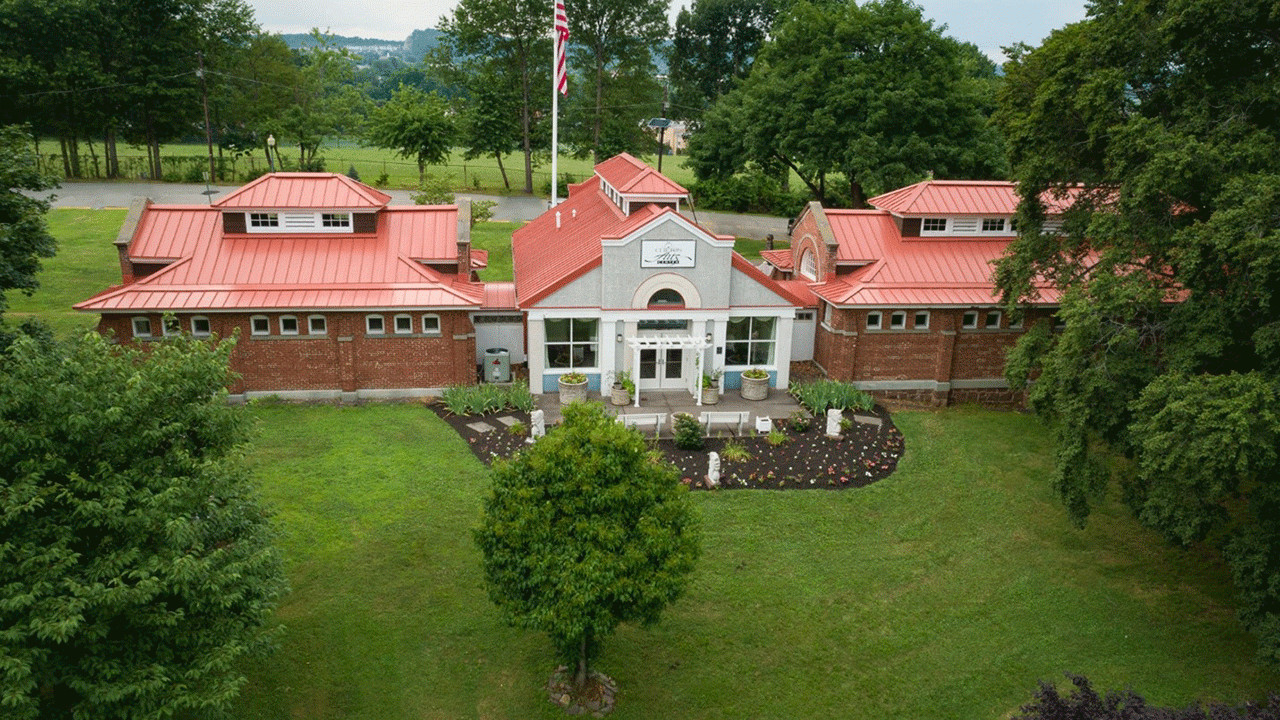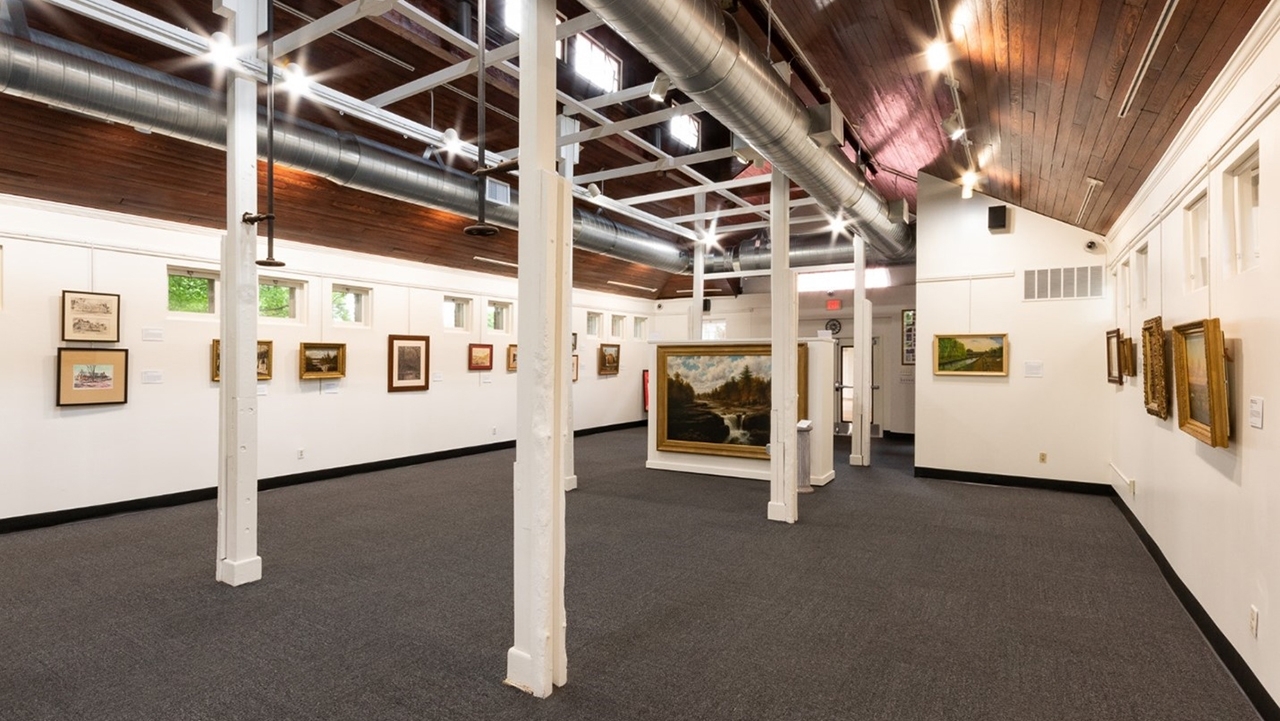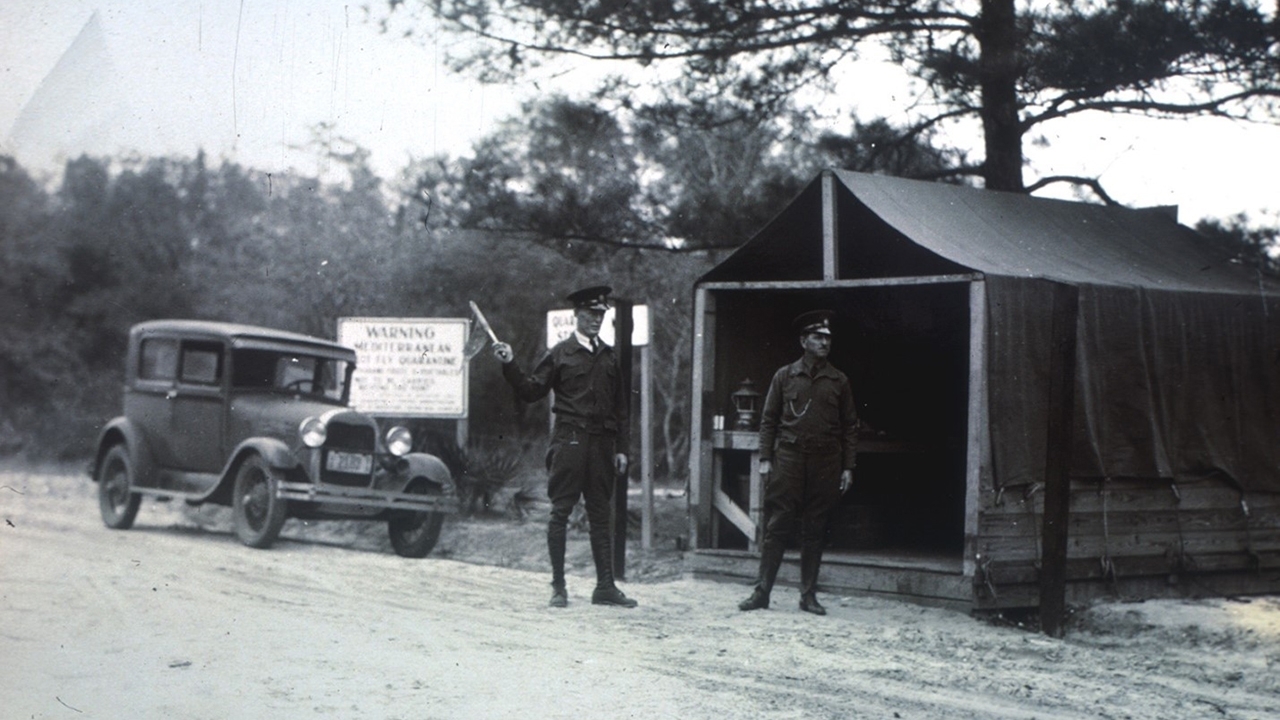APHIS in Action: Preserving APHIS History: A Community’s Agricultural Ancestry

By Jane McFarland
The Clifton Arts Center, in Clifton, New Jersey, shares an unusual connection to USDA--it is housed in an old U.S. Animal Quarantine Station. Once the location of operations crucial to preventing the entry of diseases and pests that might threaten the Nation’s animal health, the site is now a community gathering place that hosts art exhibits, special events, programs, and activities. From November 6 to December 14, 2024, the Center will celebrate its 25th anniversary with an exhibit titled “Clifton’s Quarantine Station.”
“Working in a historic building with deep ties to our Nation’s agricultural past can feel almost surreal,” says Roxanne Cammilleri, Director of the Clifton Arts Center and Sculpture Park. “Though the facility has been fully modernized with HVAC systems and all the conveniences of today, there are constant reminders that it once served as a barn for animals.”

From 1900 to 1979, staff at the Clifton Animal Quarantine Station inspected over 95 percent of the cloven-hooved animals entering the United States from abroad—the only facility of its kind on the east coast. Officials examined and tested animals arriving in the United States for disease and isolated them in barns to prevent contact with other animals. Quarantine periods depended on the animal species, country of origin, and known disease risks there. Some of the species quarantined at Clifton included antelopes, giraffes, camels, sheep, and musk oxen. Even gifts from heads of state were not exempt from quarantine requirements: An Arabian stallion from the Tunisian President was a special guest at the station on its way to President Dwight D. Eisenhower.

Though the station predates the 1972 creation of APHIS, employees there carried out a similar mission to APHIS Veterinary Services: protecting the health and value of American animals and animal products. Today, APHIS Veterinary Services employees continue this important work at the permanent Animal Import Centers in Rock Tavern, New York and Miami, Florida.
Cammilleri notes that having the arts center in the old quarantine station creates “a sense of community, turning the space into a living history that’s both inspiring and dynamic.” The Clifton Arts Center occupies two of the former quarantine station’s barns, which are joined together by a modern atrium. On the National Register of Historic Places, the center preserves an important part of U.S. agricultural and animal health history.

The historical exhibit about the U.S. Animal Quarantine Station is open to the public Wednesdays through Saturdays, from 1 p.m. to 4 p.m. at the Clifton Arts Center Gallery, 900 Clifton Avenue, Clifton, New Jersey 07013. The suggested donation is $3. Visitors can also enjoy the 26-acre outdoor sculpture park surrounding the site. More information is available at (973) 472-5499 and Gallery Exhibits (cliftonartscenter.org).
#
USDA is an equal opportunity provider, employer, and lender.

